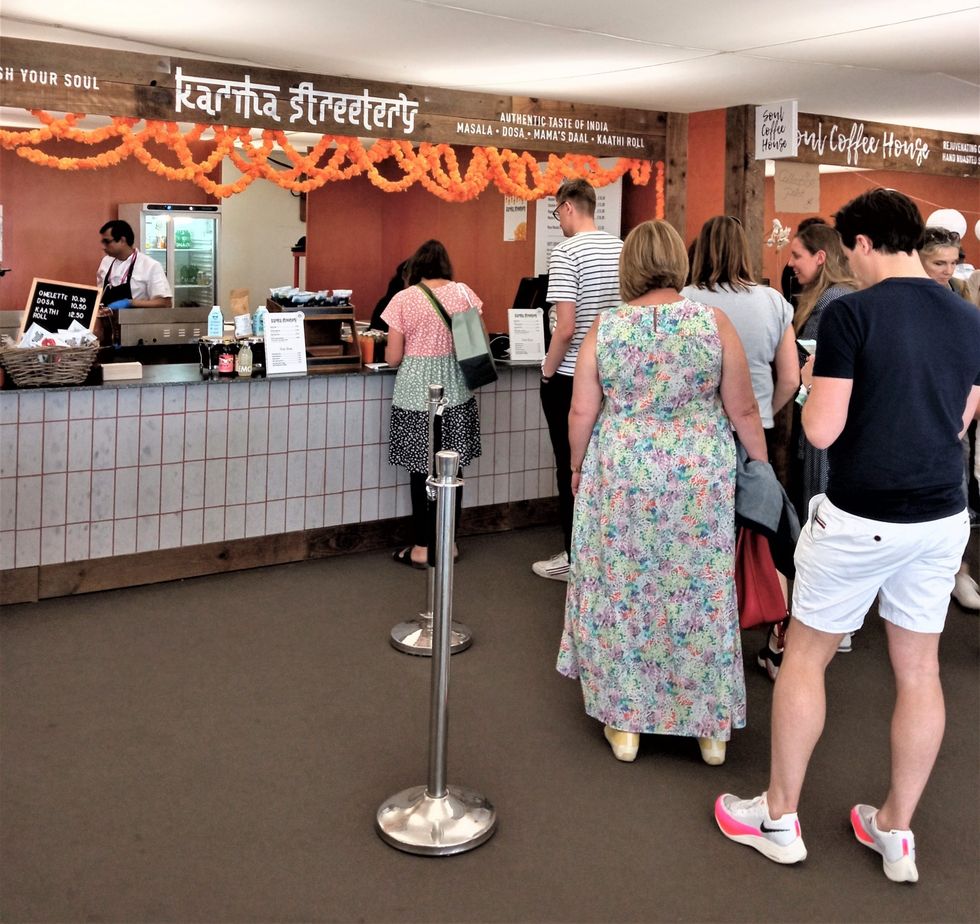IT WAS pleasing to note that the green shoots of diversity were more apparent in the crowd last Saturday (28) as the Chelsea Flower Show wound up.
I saw entire Asian families had turned out, with elderly ladies in wheelchairs. Now and again, I heard animated conversations in Hindi. Normally, plants are sold off on the final day, but you take your life in your hands if you get in the way of a passionate (middle-class white) woman gardener and a bargain.
But this year at the allium corner, a popular spot, I noticed well-heeled Asian women had their credit cards out and were as fierce as anyone else in getting what they wanted. One woman was not satisfied with the cut allium bunch she was buying and made the assistant go back and fetch something more to her liking.
Judging by what I have seen this year, it seems Asian and black people love gardening but are reluctant to join the Royal Horticultural Society (RHS). Which they should do – and modernise the organisation (which was established 1804) from the inside.
Incidentally, I am happy to report that the masala dosa stall, a culinary first run by chef Nand Kishor Yadav (“Nandu”), was doing brisk business. I tried out a freshly cooked dosa with chutney.

During the pandemic, many people discovered the healing power of gardens. And this year’s Chelsea Flower Show had several “sanctuary gardens”, which offer peace, solace and respite from the pressures of life.
Those who have gardens are the lucky ones. But some of them have to be persuaded that in order to reduce flooding, they must not concrete over their front gardens in order to accommodate their Mercedes limousines.
But the RHS goes out of its way to tell people that those without gardens can still grow an amazing variety of vegetables and flowers in containers.
I jotted down advice from Guy Barter, the RHS’s chief horticulturalist: “Gardens today can be the smallest of spaces that give us a chance to connect with nature and express ourselves. The container garden gives flexible growing opportunities for those who choose to use containers rather than plant in the ground.
“Containers are the perfect home for colourful annuals and half-hardy perennials. Most shrubs, climbers, herbaceous perennials, grasses and even trees can grow in containers.”
He pointed out that “balcony gardens can add a touch of greenery to a modern concrete jungle”.
What the RHS has to do is make itself much more relevant to Asian and black gardeners.
A young black designer, Jason Williams, who lives on the 18ft floor in Manchester, told me: “I took up balcony gardening two years ago during the pandemic. Having someone like me here (at Chelsea) helps with representation.”
Williams has turned his hobby into a business, the ‘Cirrus Garden’. He says people can look at his light, fibreglass containers and think, “This is something I can do.”



















 His Highness Prince Rahim Aga Khan V
His Highness Prince Rahim Aga Khan V


Expressions of inclusion
How the Chelsea Flower Show can attract ethnic minorities